Informing and engaging citizens
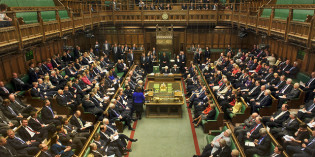
MP expenses and the media: a more informed analysis shows many MPs spend far less than allowed
Comparisons of MP expenses in the media are often highly deficient as they omit crucial explanations and qualifications, writes Raphael Heuwieser. He argues that although some parliamentarians act irresponsibly with regard to their expenses and should be held accountable, an objective and fair assessment should be used to identify them. Similar PostsDoes the online tool WriteToThem foster meaningful […]

Democratic participation can help to alleviate Britain’s housing crisis
Britain’s housing crisis is one of the biggest issues facing Westminster, with low building rates rocketing house prices – particularly in the South of England – locking young people out of the housing market. Here, Charlie Cadywould shares research which shows the role democratic participation can play in alleviating the housing crisis. Similar PostsThe best of Democratic […]
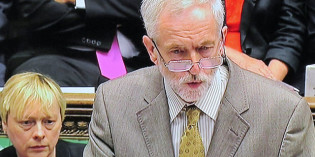
Party mechanics: Why Labour would struggle to oust Jeremy Corbyn
If moderates in the party thought the parliamentary vote on Syria might help them get rid of Corbyn as leader, they are very much mistaken, writes Tom Quinn. He argues that in fact their options look quite limited, due to Corbyn’s wider party support, the absence of any mechanism for a confidence vote on a […]
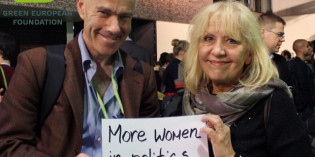
To enhance women’s representation, internal party democracy may need to be ‘managed’ in the short term
With a general election in the Republic of Ireland imminent, gender quotas have already doubled the proportion of women candidates relative to the 2011 general election. In most cases the implementation of quotas at constituency level has been straightforward. However, problems have arisen largely due to ‘local’ versus ‘central’ conflict, writes Claire McGing. Here she explores how […]
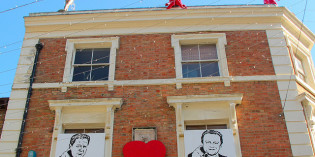
As the current parliament progresses, the dissonance between constitutional norms and governing reality may prove too great to ignore
This May’s General Election saw the end of the first full coalition in post-war British politics, between the Conservatives and the Liberal Democrats. The partnership brought together two parties with distinct constitutional philosophies, and entailed a trade-off between principle and pragmatism which saw the latter’s electoral evisceration. Felicity Matthews looks both backwards over the last five […]

How “black knights” such as Vladimir Putin’s Russia help dictators survive elections
Democracy is facing challenging times due to a number of factors which span national, religious, and political divides. Jakob Tolstrup argues that “black knights” such as Vladimir Putin’s Russia have played a large role in subverting the democratic process in neighbouring states in pursuit of their own geopolitical goals. Similar PostsThe post-fact world: six steps you […]

People protest for many reasons, yet we don’t know how effective protests are
On the 17th October, over 20,000 people marched on Parliament Square in London. Why do people take to the streets, and does it make a difference? Interwoven issues of grievances, efficacy, identity, emotions and social embeddedness help answer why. However, there’s a gap in our understanding of when and how demonstrations affect political agendas. Here, Jacquelien […]
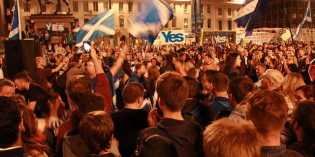
An enduring legacy? The independence referendum may not herald the beginning of a new era of political engagement
The independence referendum fundamentally changed Scottish politics, with an extraordinarily high turnout of 84.6% leading some to speculate that a new era of political engagement had begun. But as Heinz Brandenburg, Zach Greene, Neil McGarvey and Stephen Campbell show, that may not be the case – with those who were brought to the polls for the first time likely […]
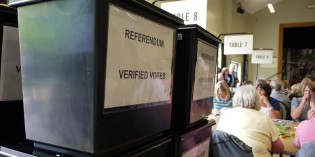
Significant changes to the referendum process are required to make direct democracy deliberative in practice
Despite their surface similarity, deliberative democracy and direct democracy often pull in different directions. In this context, Lawrence LeDuc asks how the conduct of referendums can be made more deliberative. He finds that the process is currently inhibited by the intrusion of politics, the absence of clarity, the amount and quality of information, and the degree […]
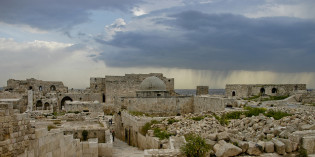
If bombing the Middle East was the way to peace, it would be the most peaceful place on Earth
MPs yesterday voted to deploy bomb attacks against ISIS/Daesh strongholds in Syria, in response to their attack on Paris earlier this month. Here, Sean Swan argues that this is midguided, and despite the understandable yearning to be seen to ‘do something’, the Middle East has been bombed by the West before without achieving the desired results, and […]


 Democratic Audit's core funding is provided by the Joseph Rowntree Charitable Trust. Additional funding is provided by the London School of Economics.
Democratic Audit's core funding is provided by the Joseph Rowntree Charitable Trust. Additional funding is provided by the London School of Economics.